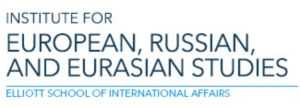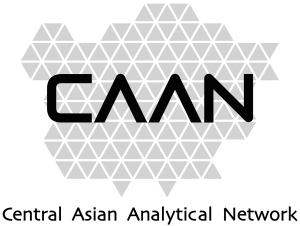An interview with

Raffaello Pantucci
Senior Associate Fellow, Royal United Services Institute (RUSI)
Raffaello Pantucci’s research focuses on terrorism and counter-terrorism as well as China’s relations with its Western neighbors. Prior to joining RUSI in London in 2013, Raffaello lived for over three years in Shanghai, where he was a visiting scholar at the Shanghai Academy of Social Sciences (SASS). He is currently completing a writing project looking at Chinese interests in Central Asia under contract to a major publisher. For more information on Raffaello’s work please visit: http://www.raffaellopantucci.com and for his work on China and Central Asia: http://www.chinaincentralasia.com
What has led to the worsening of the US-Chinese relations today? Is this a legacy of unresolved trade issues, the struggle between democracy and authoritarianism, or is it primarily connected to the current US administration?
The almost complete collapse in US-China relations at the moment is a product of a number of trends on both sides. First, in Beijing you have seen rise a government under Xi Jinping that feels far more entitled and firm about its position on the world stage. Shedding the old maxims of ‘hiding and biding time’, Xi Jinping’s China is the end product of decades of economic growth and prosperity that have shot China up from being a developing world country into a global power in two short decades. This has naturally engendered confidence and to some degree arrogance on the world stage and a desire to shape the world order rather than just be dictated by it.
At the same time, this shift in Beijing has followed a growing despondency in Washington regarding China.
This stems from a number of different places. There are those who fear the waning of Pax Americana, following persistent inconclusive wars in the Middle East and a reduced ability to dominate international affairs. From their perspective, a rising China is a clear challenger to the throne who must be aggressively countered.
And then within the China watching community, there are those more inclined to be dovish towards China from years of sinology and close friends in China. They have watched as the country has gradually increased its political repression under Xi Jinping, crushing hopes that had been raised during the Hu Jintao era of explosive economic growth that prosperity was going to herald a more open and liberal China. The business community has grown increasingly frustrated at the deal they had to strike to make money in China, which was to sacrifice intellectual property for market access. Additionally, they have found over time that they are still not being let into some sectors, and they now have the problem of not only facing Chinese firms that are just as strong, but also state supported challengers around the world. And finally, the China hawks who have long wanted confrontation with Beijing now see an opportunity to lead the debate and push forward their narratives of destroying the CCP.
The narrative of democracy versus authoritarianism is a useful lens for people to try to explain this simply, but it does not accurately capture the discourse, as this really is a conflict about power and norms. Within this, President Trump is a complicating factor, mostly because he has greatly reduced America’s standard (and therefore the democratic ideal) in the world while at the same time shown himself to be quite erratic on China. On the one hand, he is presiding over an administration that is pushing back on China more aggressively than any power before, but at the same time, he is personally praising Xi Jinping. This oscillation causes all sorts of problems. But a key element that American analysts tend to miss is that from Beijing’s perspective, there is a clear continuum between Obama and Trump – they are all articulations of America as an adversary. The fact that in the west we see them as so different is not how they are perceived on the ground. This is important as it further clouds our ability to effectively and realistically frame things as a debate between authoritarians and democrats given the differences we see between Trump and Obama.
What consequences do these US-Chinese contradictions have for the countries of Central Asia?
The clash’s impact on Central Asia is largely one of further marginalizing the United States in the region. Geography means Central Asia will always prioritize its relations with China and Russia, but as the relationship between the US and China sharpens, the challenge for Central Asia will be to continue to find a way of striking a path through the middle (if it wants to). If the US continues down a path of confrontation with China, both sides will start to apply more pressure in an effort to get those in the middle to make a choice between them—something no one really wants to do. This will be a problem for regions like Central Asia, which find themselves with important relationships with neighbouring China.
At the same time, the situation is made even more complicated by the fact that two other countries that Central Asia finds itself next to, Russia and Iran, also find themselves in conflict with the United States. These complications are likely to sharpen as the clash between China and the US gets worse, leaving Central Asia with even fewer options and surrounded by American adversaries.
Can COVID-19 change the role of the USA, Russia, and China in the Eurasian space? Can it, for example, slow down the dynamics of BRI and the EAEU? If Russia faces an economic slowdown and political problems, does this influence its political image and power limits in Eurasia?
The EAEU is likely to continue to face problems as its economic heart, Russia, finds its economy under ever greater pressure. It is hard to see, however, this reducing Moscow’s influence over the former Soviet heartland, given most of these economies’ continued dependency on Russia and their strong links to Moscow. The EAEU’s dynamic was always too ambitious for many of those outside Russia, and the pressure against it was always going to limit how far it could go. The question now, however, is whether it can provide backup or support for economies suffering as a result of COVID-19. The fact that this is unlikely to be possible—thanks to shrunken coffers in Moscow—will only further highlight the institution’s limitations.
BRI was already slowing down before COVID-19. The narrative was one of countries taking on more than they could handle and China increasingly finding itself carrying a lot of bad debt. Kyrgyzstan has already sought some renegotiation of its debt burden with China (amongst others), while China has asked for a slowdown in gas supplies from Turkmenistan, Uzbekistan and Kyrgyzstan. This is the literal articulation of what a BRI slowdown looks like. It does not mean it is going to stop, but you will see a greater focus on projects that are viable and able to deliver results, with an effort to stop waste—something that will be driven in no small part by growing pressure at home for Beijing to spend its money on China, not on foreign projects of questionable value.
“Countries of the Middle East and Central Asia region have been hit by two large and reinforcing shocks, resulting in significantly weaker growth projections in 2020. In addition to the devastating toll on human health, the COVID-19 pandemic and the plunge in oil prices are causing economic turmoil in the region.” (IMF)
Is the American establishment worrying about China’s growing influence in Central Asia’s security?
I recall having a meeting in Washington about a year ago in which the topic of Chinese security influence in Central Asia came up. I do not recall anyone being particularly interested or concerned about the topic. They see the SCO as one of the main points of security engagement and see it as a fairly impractical and ineffective organization. At the same time, they see Chinese security and bases going up in the region to support countries in counter-terrorism efforts and border protection as a process, which they can just ignore given its marginal impact on their interests. At worst, they imagine that it might lead to China getting dragged into military confrontations in Afghanistan and therefore be a net advantage for the United States. Overall, they see Chinese security encroachment into Central Asia as something which is a problem for Russia and likely to cause tensions between China and Russia—something which, again, is a positive for Washington.
Coronavirus can enhance regionalization processes, since countries may want to protect themselves and create closer production chains. What stakeholders can benefit from this—the five Central Asian countries, or Russia and China? Someone who has clearer goals?
China is most likely to come out of this with the most benefits in the Russia/Central Asia space. Its considerable domestic market size means it will be able to replace regional supply chains domestically and will have the companies that can start to dictate within their regions. Having said that, if Central Asia is dynamic enough, it might be able to take advantage of the fact that there are some things which just do not make economic sense to be done in China anymore. Historically, these have relocated to Southeast Asia, but given that the region is going to find itself even more torn in the US-China clash, if Central Asia could offer itself as a new place to relocate, it might be able to take advantage of the relative stability it could offer Chinese manufacturers.
The United States, Russia, and China want to promote a peaceful and prosperous Eurasia. However, can economic difficulties (including problems faced by migrants) increase instability in the region?
The drop in remittances and employment opportunities that will take place from the slowdown in migrant labour is going to create a real problem in Central Asia. With few immediate prospects at home, it is likely that we are going to see a rise in an idle male workforce, which is a recipe for problems.
Frankly, it is up to Central Asian governments to focus their efforts and take advantage of this situation to offer themselves as places that can offer manufacturing capabilities aligned with the new supply chains that are likely to develop around China as decoupling between the US and China takes greater hold. If they are able to develop this capacity at home, they will be able to create gainful employment for the now idle migrant labor workforce. Otherwise, they will find themselves hit by the triple-whammy of growing numbers of idle men alongside the slump in remittances income and reduced income from rock bottom commodities prices which will resonate across the Eurasian space.
Main photo: President of People’s Republic of China Xi Jinping, source















